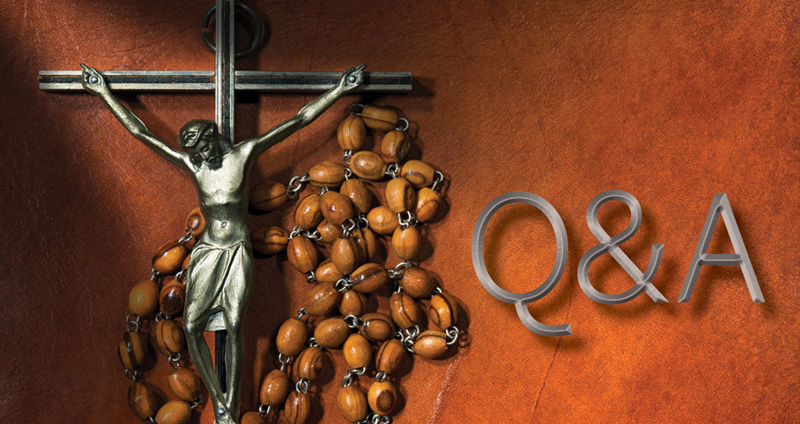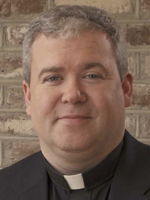
Q: Why are there no saints from the Old Testament? Doesn’t even Moses qualify? (Hilton Head, SC)
A: This is a question that provides a much-needed clarification. We know that before the saving work of Jesus Christ, no one could enter Heaven. The gates of paradise were closed due to man’s sin and his incapacity to save himself. In his redemptive mission, however, Jesus not only offered salvation to the people of His day and their posterity, but He also “went to hell” and offered salvation to all the holy ones of the Old Covenant.
In this work, many of the Old Testament people of holiness were offered the happiness of heaven. And all those in heaven are saints. In the Western tradition, we don’t have specific feast days for the Old Testament saints, but certain of the Eastern Churches of the Catholic Church do have feast days for them.
And so, in summary, I’d like to pass along this quote from the Catechism of the Catholic Church: “The patriarchs, prophets and certain other Old Testament figures have been and always will be honored as saints in all the Church’s liturgical traditions” (#61).
Q: I’m in older age and often eat alone. Is it all right for me to just offer a brief grace before meals? (Columbia, SC)
A: Thank you for your question. I want to first point out that no Christian is ever alone and you certainly have a “cloud of witnesses” with you throughout your day and when you eat (Hebrews 12:1).
With that said, any grace before meals is acceptable since it involves a lifting up of our hearts to God and an expression of gratitude for his blessings and kindness to us.
Incidentally, I think it’s a sign of the Church’s practical nature that one of the shortest prayers in our treasury of set prayers is the Grace Before Meals (“Bless us, O Lord, and these thy gifts…). The Church realizes that we’re ready to eat and we shouldn’t let our food get cold.
Q: Whatever happened to the Low Mass? We seem to have sacrificed the contemplation of this Mass for the noise of various types of lengthy High Masses. (Hilton Head, SC)
A: The Low Mass was a former expression used for a Mass with diminished ceremonies. It was a part of regular Catholic life before the reforms of the Second Vatican Council, but is now properly a part of the Extraordinary Form of the Roman Rite (which is the expression given to the celebration of the Mass and sacraments according to the Missal of 1962, which does not include many later reforms to the liturgy).
In popular usage, however, the term Low Mass has seen a comeback (and redefinition) as many parishes are using it to designate a Mass without music, etc. Some parishes are avoiding the term, but are instead using terms like Quiet Mass, etc.
All of this takes us to your question, and it’s a question of liturgical theology. The Mass has always meant to be sung, but the Western tradition moved away from this custom. In some areas, this is properly being restored. In other areas, options of a festive Mass (the descendant of the old High Mass) and a Low or Quiet Mass are being offered. It’s good for parishes to have options when possible since we know people have different temperaments, personalities, and spiritualties.
For some people, a Quiet Mass helps them to draw close to God. For others, a festive Mass is a great help to them in encountering Him. While the Church favors a festive Mass, she permits and understands the need at times for a quieter Mass.



